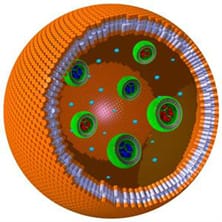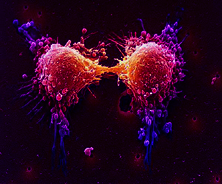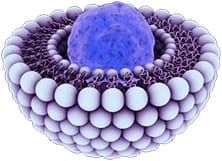The First Plastic Cell with Organelles that Work


From left to right: substances are confined in small spheres (the organelles) and mixed with reagents and enzymes. These are then confined in cells with a polymer cell wall.
A group of chemists led by Jan van Hest from the Institute for Molecules and Materials at Radboud University Nijmegen have developed a living cell out of plastic. This new artificial cell contains organelles that can carry out a number of chemical reactions.
Cells are efficient biochemical reactors capable of running a wide variety of complex chemical reactions, making it an object of interest for chemists who want to replicate its efficiency for other reactions. By doing it they hope to optimize chemical reactions and also learn about how life originated on earth and the transition from chemistry to biology.
In this research, the researchers have developed organelles by filling chemicals into tiny spheres and placing them inside a water droplet which is then coated with a polymer layer to form a cell wall. In these artificial cells, a cascade of reactions were observed to be taking place under fluorescence microscope just like the way it happens in natural cells in our body. These chemicals after reacting inside the organelles enter plasma and get further processed elsewhere. This makes it the first artificial polymer cell to have been made, taking them a step closer to understanding the origin of life. This study is published in the journal Angewandte Chemie and highlighted by Nature Chemistry.


